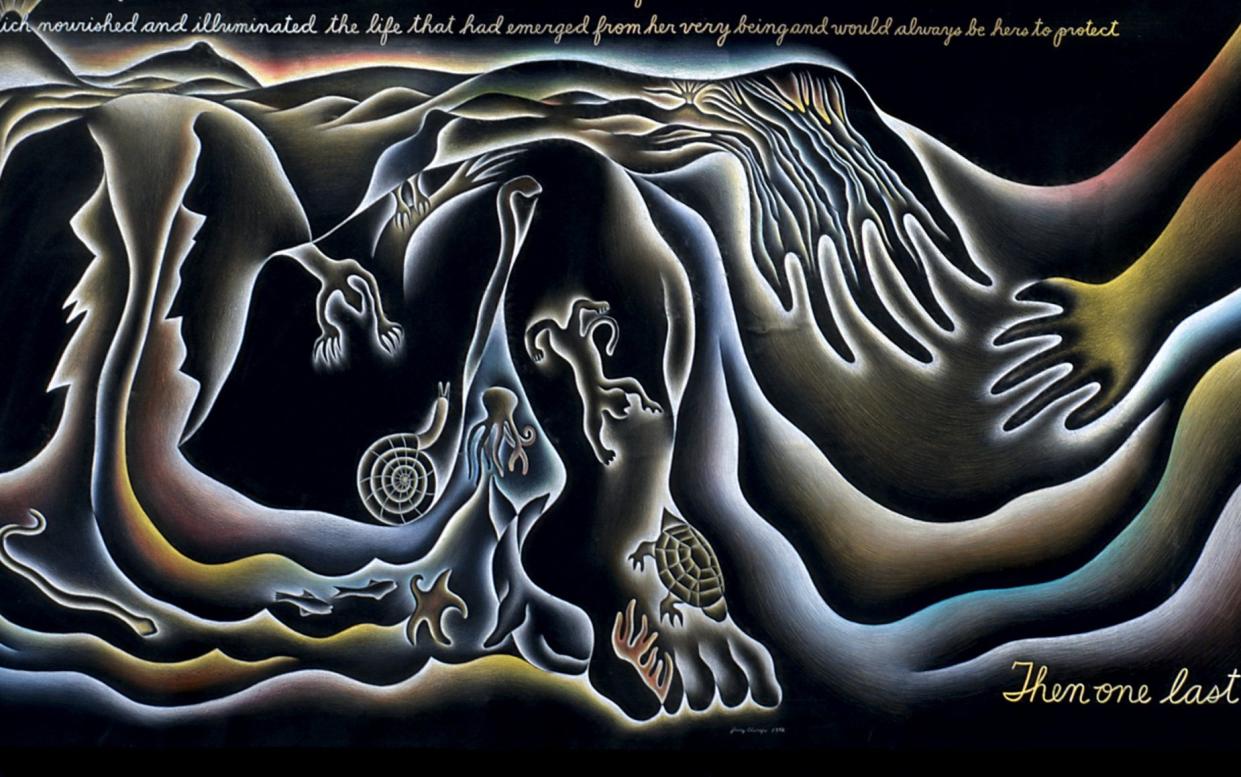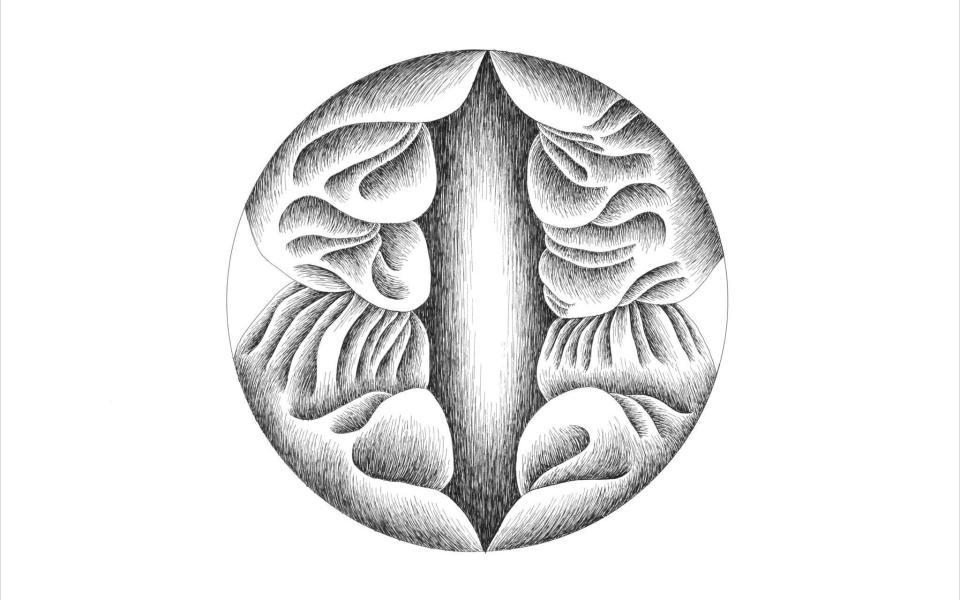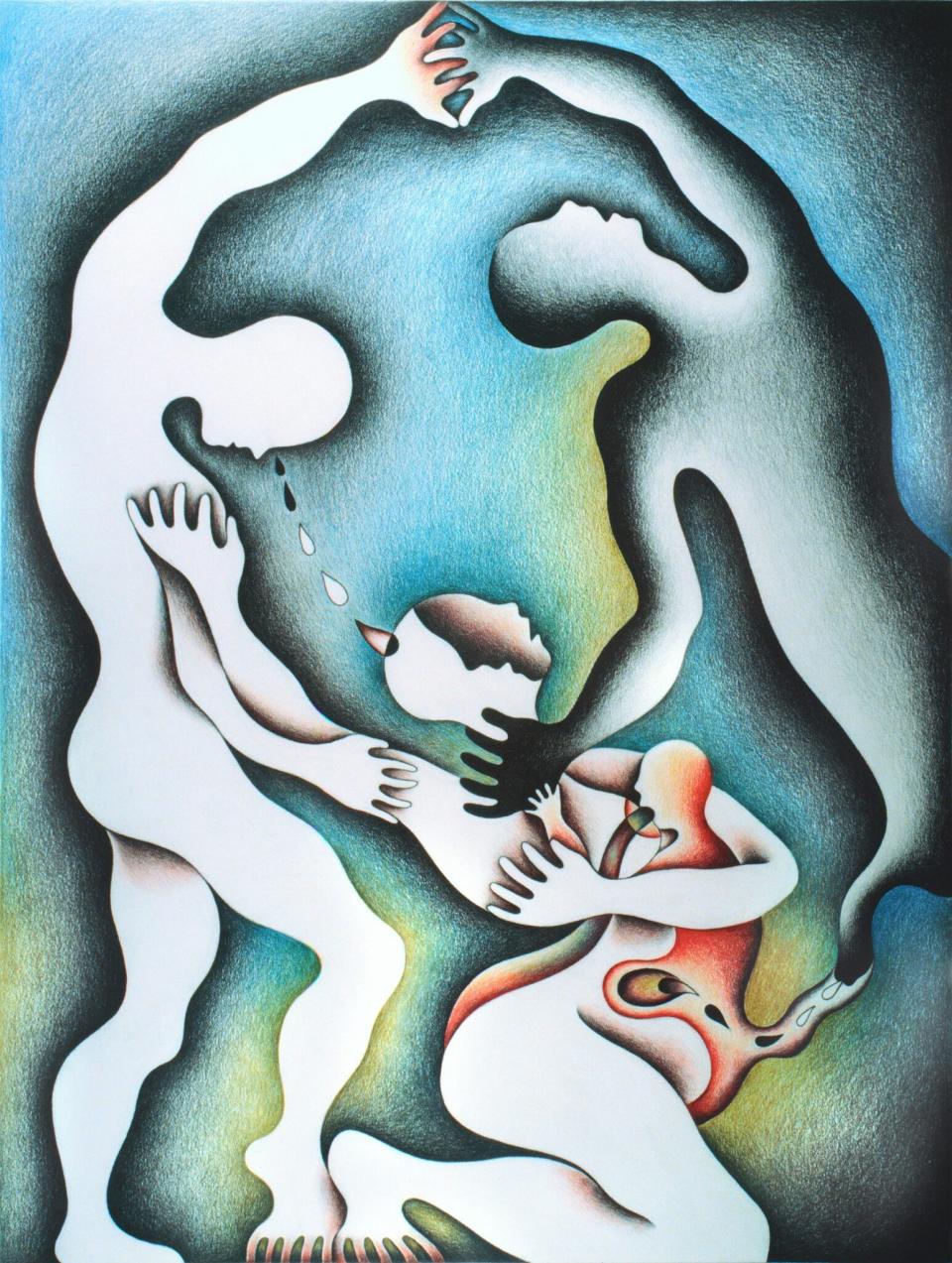Judy Chicago: Revelations – No longer the priestess of ‘pornography’

- Oops!Something went wrong.Please try again later.
Intense: that’s the vibe inside the Serpentine’s new retrospective for the 84-year-old American feminist artist Judy Chicago, which includes, among 200 or so works, various trippy, incandescent visions of women giving birth.
As a father (of three), I can’t confirm if, say, In the Beginning (1982) successfully conveys the overwhelming sensation of delivery; in this 32ft-long, primordial panorama, characteristically rendered using Prismacolor pencils (and, according to its curator, the show’s “crux”), a newborn suckles on lava-coloured nipples, while, nearby, tiny, pictographic creatures, like critters teeming in fertile mud, spew from a suggestive chasm.
Yet, beholding Chicago’s imagery – which is often eerily backlit, and surrounded by throbbing, thrumming lines, like spectral contours on a map of pain – I was transported away from the gallery, inside a listed former gunpowder magazine in London’s Hyde Park, to the trauma and awe of the obstetric ward.
That fissure within In the Beginning is typical: there are, in this show, a lot of representations of vulvas. A decorated porcelain plate, for instance, evokes the Egyptian pharaoh Hatshepsut in “vulval” form; Chicago created it while labouring over The Dinner Party (1974-79), a banquet-like installation, today in New York’s Brooklyn Museum, with 39 bespoke place settings, each honouring an important historical woman. (Chicago still recalls her outrage as an undergraduate at UCLA when a professor “smugly” opined that the contribution of women to European intellectual history had been zilch.)
It would be easy to harrumph about the Serpentine’s exhibition, which was inspired by an unpublished illuminated manuscript – retelling the Book of Genesis from a feminist perspective – that Chicago also produced during the 1970s; although she despaired that it would ever see the light of day, this idiosyncratic text, which shares the nuttiness of William Blake’s unreadable prophetic books, is reproduced as the catalogue.

The way, for instance, Chicago depicts men – as grimacing, nose-picking, sloppily urinating horrors – is caricatured and ludicrous. Her works about climate change, albeit impassioned, have the nuance of a placard.
Moreover, for all the talk of its marginalisation, art by women with an interest in the occult is, today, very much in vogue, as attested by Chicago’s recent collaborations with Dior (who are supporting the Serpentine’s show); Chicago is no longer radical, but radical chic.
Yet, despite this, I found Revelations absorbing – and I’m not just saying that because negativity could be construed as mansplaining, patriarchal prejudice.
Wasn’t Chicago right to bemoan the iconographic void within art history when it came to childbirth – a void that, over the past six decades, she has admirably sought to fill? The Crowning (2010), for instance, which appears, simultaneously, like a Vorticist painting and a Mayan relief, depicts, with unforgettable, stylised force, the emergence during childbirth of a baby’s head.

And, while Chicago’s draughtsmanship used to be maligned, she has, on this evidence, always been capable of mesmerising, assertive images, which invest modern womanhood with a primeval, goddess-like spirit. Several far-out floral drawings from the 1970s, like prismatic, kaleidoscopic diagrams or colour wheels, are also satisfying – especially one that calls to mind a platter of glistening pink-grapefruit segments.
Thankfully, we’ve come a long way since 1990, when Chicago’s work was denounced in the US Congress as “pornographic”. Men may not feel enormously welcome inside Revelations, but that didn’t stop this one from succumbing to its spell.
From May 23; information: serpentinegalleries.org

